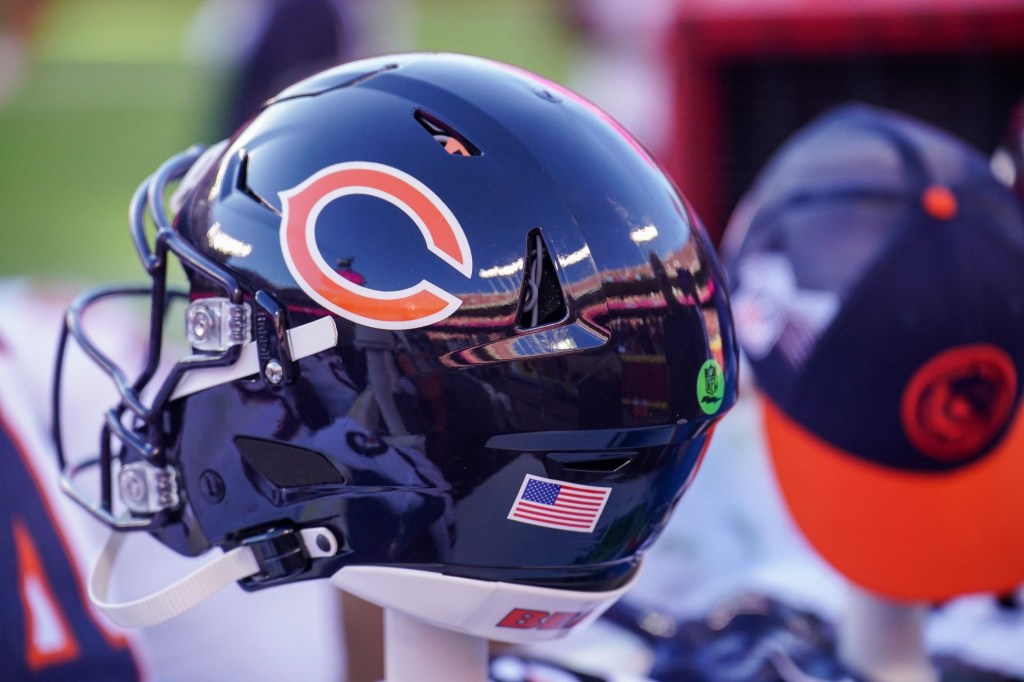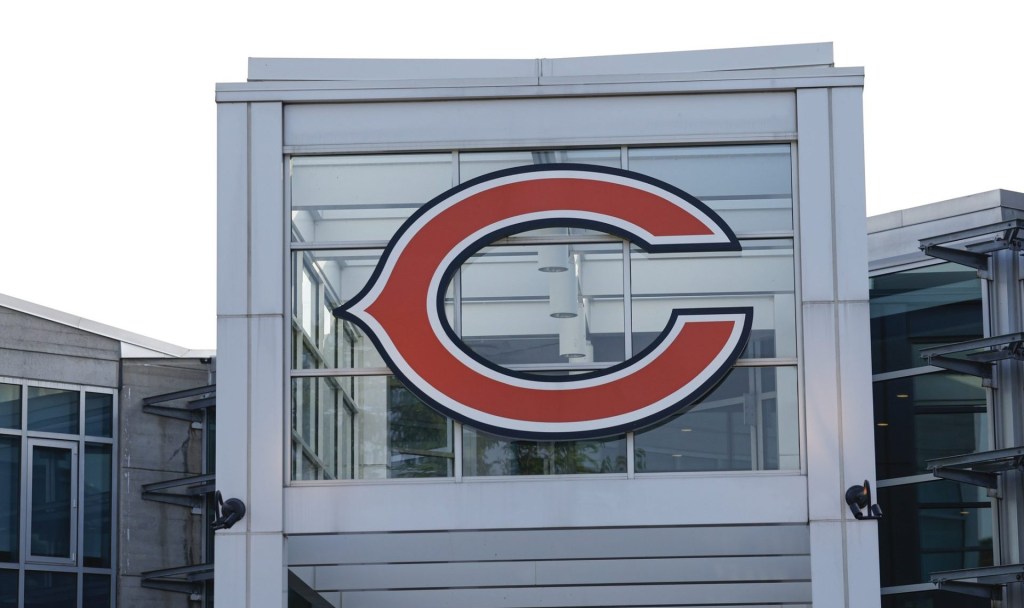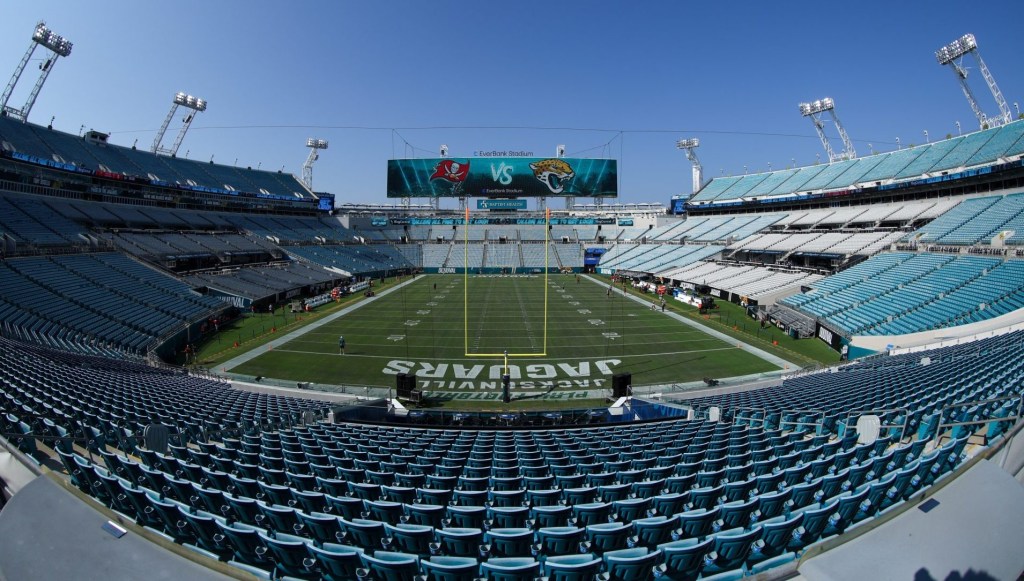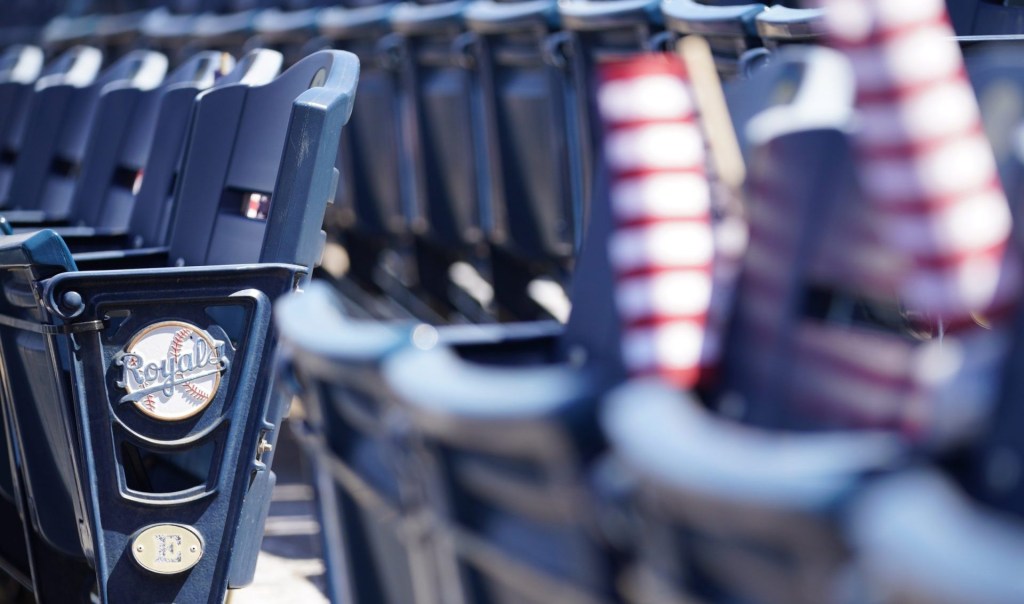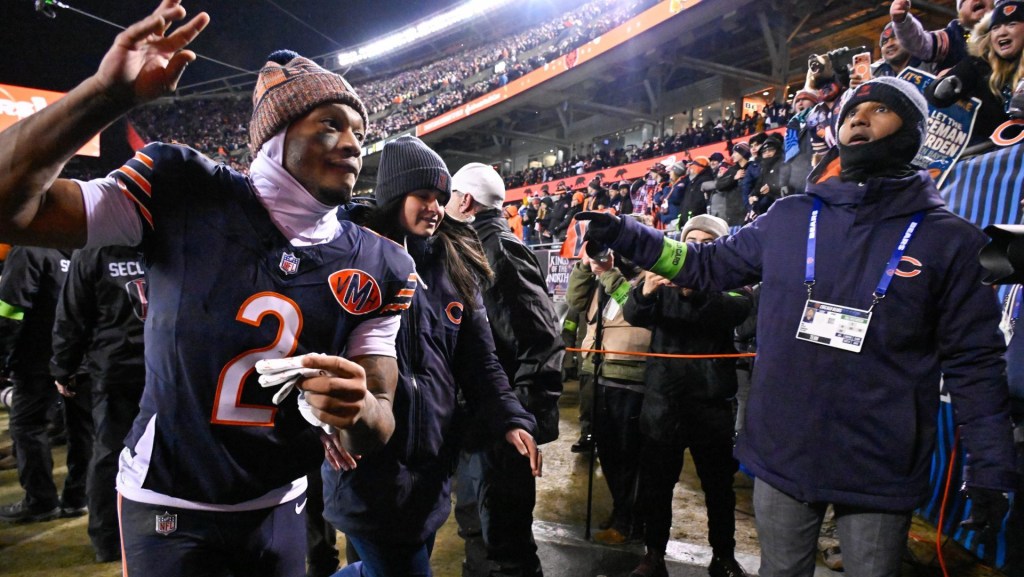When Jerry Buss bought the Lakers in 1979, he transformed The Forum into a popular entertainment destination, complete with a VIP lounge where season-ticket holders, athletes, and celebrities could rub shoulders. But by today’s standards, the pinnacle of game-day experience is in a different stratosphere.
High-end, experiential, and communal hospitality is the new frontier of sports fandom, where a ticket is less about where you sit and more about how you enter, eat, commune, and unwind. Across pro sports, teams are racing to redefine “premium,” turning arenas into curated experiences designed for the ultra-loyal and ultra-connected.
Brooklyn Sports Entertainment has been at the forefront of this surge. In 2021, the Nets’ and Liberty’s parent company opened the glitzy Crown Club, reserved for courtside ticket-holders. The joint venture with Major Food Group offered a glamorous dinner lounge with plush velvet furniture and the chefs behind Carbone.
When Shanon Ferguson took over as BSE’s chief hospitality officer in 2023, he knew Barclays Center could offer even more premium experiences. After surveying fans and organizing focus groups, the former Soho House head of operations found people wanted exclusivity without losing social connection in private suites.
“They want to be a part of something that feels more like a community,” Ferguson tells Front Office Sports. “And to do that, you had to be in the most premium spaces.”
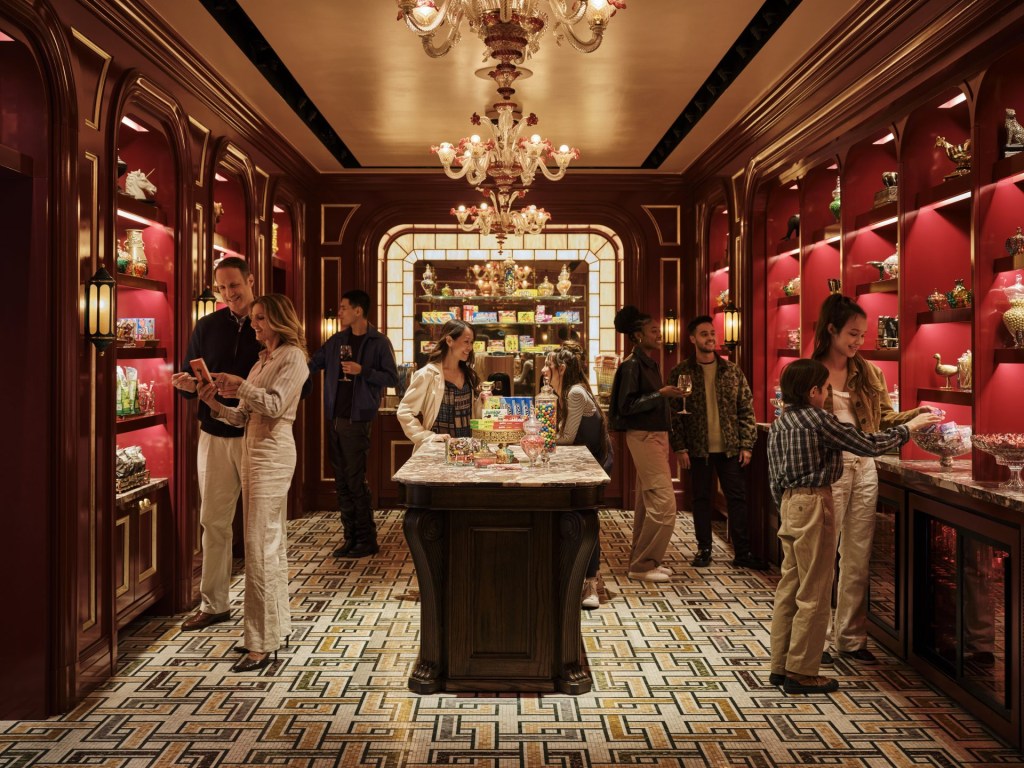
The hospitality team removed 30 suites and replaced them with two massive clubs, each taking up about 12,000 square feet. Outfitted with 192 arena-facing seats, dinner tables inside, and a central bar, the Toki Row boasts an elevated atmosphere with an aesthetic meant to resemble Brooklyn brownstones. The other space, JetBlue at The Key, comes with a blacktop playground floor, an all-inclusive buffet, and is the only area in the entire arena to offer beer on tap.
Monumental Sports & Entertainment achieved something similar when the Wizards and Capitals unveiled new suites and two luxury club spaces in Capital One Arena. After leasing the space in the adjacent Gallery Place mall, the teams moved staff offices next door, allowing for 20% more premium space. The arena now includes the new Lexus Vaults, bunker-style suites that supply 20 guests with a private VIP entrance, signature mixologists, and all-inclusive, chef-curated menus with immersive views of the court, rink, or concert stage. (The suites are also outfitted to host boardroom meetings for companies eager to utilize the space.)
In addition, the new United Globe Club and Lounge, offered to courtside and glass ticket-holders, takes up 24,000 square feet and spans two different levels, each filled with interactive engagement walls, original artwork, historic artifacts, and custom United travel-inspired decor. Jim Van Stone, president of business operations and chief commercial officer of Monumental Sports & Entertainment, says they are already 90%-plus sold between both teams.
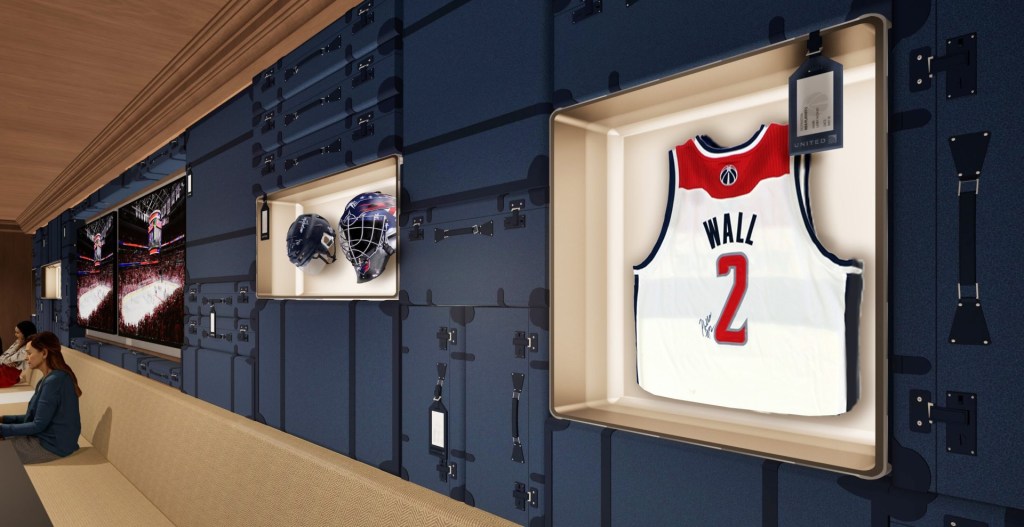
The decision to partner with United made sense considering the capital’s international hub and the airline’s recent investment in a Dulles International Airport terminal. But Van Stone says the company’s first-class airport lounges made them an ideal collaborator to deliver an experiential environment. The extra bonus to enjoying the club and lounge is a premier concierge team that serves as “guides, storytellers, and experience architects,” Van Stone says. “We want to make it seamless, frictionless for people.”
BSE’s partnership with Major Food Group was what inspired the Cavaliers’ collaboration with L.A.-based hospitality firm The h.wood Group three years later—for Cleveland’s most elaborate and elegant project yet: HIPP, Rocket Arena’s exclusive new membership club “[The Cavs] get the press that this isn’t the stadium throwing together a restaurant—this is a real operator,” says Brian Toll, cofounder of The h.wood Group.
Every Cavaliers game day, thousands of fans navigate Cleveland traffic, jockey for parking, funnel through security lines, and scramble around the concourse to secure food and drinks. But for HIPP members, the night flows differently.
Instead of circling the block for a garage, these members drive straight under the arena on a dedicated ramp that only players, owners, and executives can access. A valet takes their keys. They walk down a wine-and-gold-carpeted hallway to a brief security checkpoint. Then, a host escorts them through a mood-lit corridor to discreet black doors.
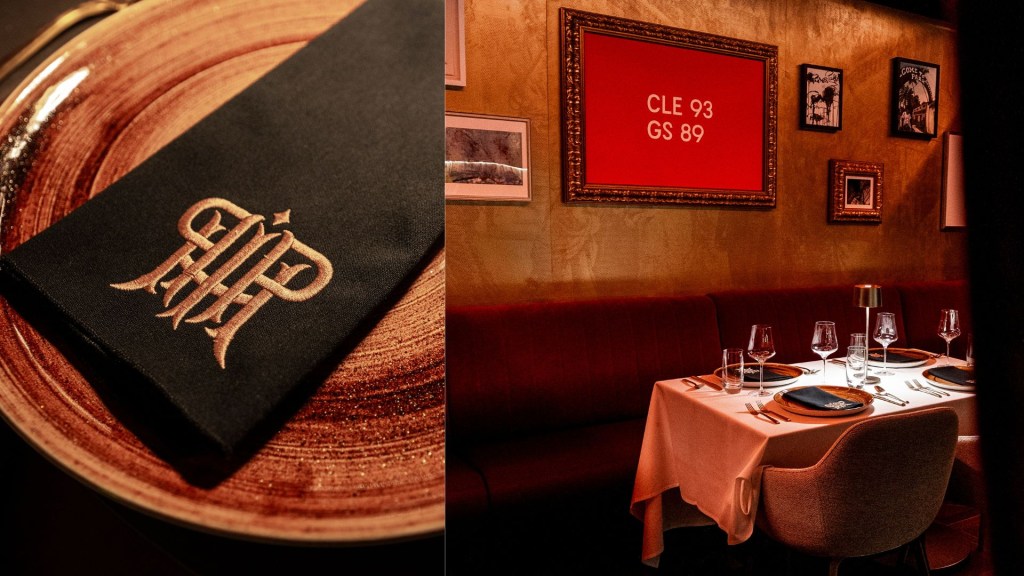
Inside this hidden speakeasy, basketball almost feels like a bonus. Upon entering, guests are greeted by a light-filled rotunda and pull-out cabinets of Mitchell’s Ice Cream, movie theater candy, and high-end seltzers. A host guides members past a full-service bar to a seat with a custom menu. Then, seven minutes before tip-off, televisions displaying Cleveland artwork flip over to the broadcast, encouraging guests to wrap up their meals and migrate to courtside seats—or another club lounge, which they have free rein to explore.
It’s hard to believe the space was once used to repair broken arena furniture.
The ultra-premium club, accessible only to team investors, is the final piece of a four-year event-level overhaul. At halftime, members graze on desserts and elevated stadium snacks; postgame, a DJ or live band keeps the night going with cocktail service. “We want this to rival any high-end hospitality space across the country—and the world, for that matter,” Nic Barlage, CEO of Rock Entertainment Group and Cavaliers president of business operations, tells FOS, “and I think we’ve achieved that.”
This season, the Suns also opened a members-only lounge at Mortgage Matchup Center; the Bucks added a premium dining lounge to Fiserv Forum; and the Nets continued enhancing Barclays Center with members-only in-seat dining.
“It’s not really enough now to just have an arena, have seats, and have people watch a game,” Van Stone says. “Maybe it hurts sports fans to hear that, but when you cater to so many different people, if you’re not providing them something else besides the product on the court or rink, you’re missing out.”
The executives are careful to note they don’t want to alienate fans who can’t avail themselves to the luxe experience. They hope to make the entire arena feel premium without sacrificing an energized atmosphere and home-court or home-ice advantage.
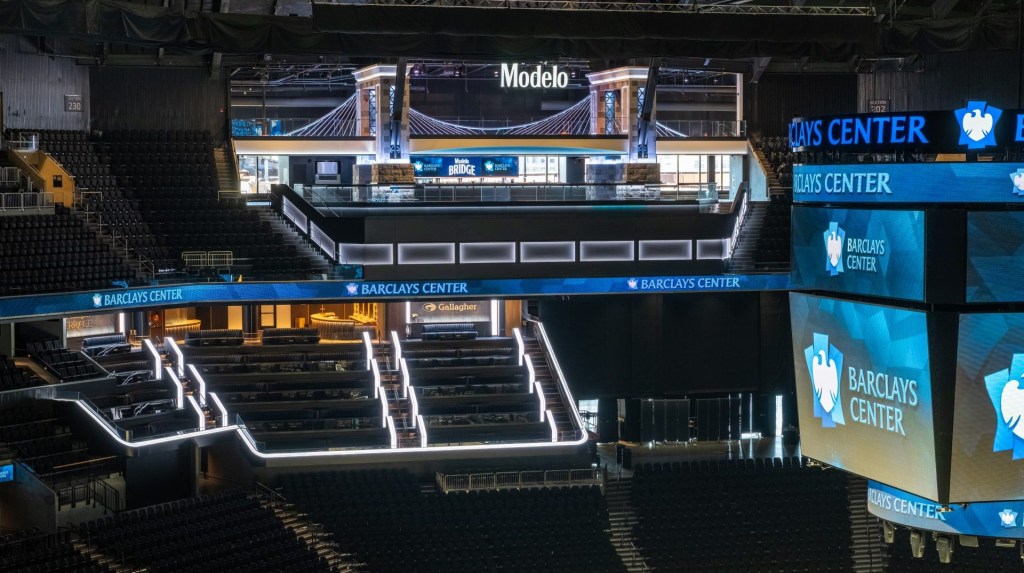
At Barclays Center, Ferguson points to the Modelo Bridge, a new installation in the upper concourse that boasts a massive bar and is intended to be an expansive, lively, standing communal hub for all ticket holders. “Historically, premium has always meant that you’re in the best club with the best seats, as close as you can possibly get to the floor,” Ferguson says. “And what we feel that we’ve helped redefine is that premium is everywhere.”
Van Stone and others see these new high-end lounges as part of a bigger way to bring more excitement and engagement to their team’s product—and it doesn’t hurt that it also spells less time in long lines on the concourse for VIPs. Often, the premium experience may be more exciting than the game.
But, Barlage says, “we still want people in their seats.” At HIPP, various game clocks and servers give members 15-, 10-, and 5-minute warnings ahead of tip-off and the half resuming. “We are very thoughtful and intentional about that,” Barlage says. “And I think that’s a really important situation to never ignore as you’re continuing to enhance and build upon the fan experience.”
Ultimately, h.wood Group cofounder John Terzian believes creating high-end experiences for both VIPs and general ticket-holders takes more than just vision—it requires smart partnerships, significant investment, and a deep understanding of what fans actually value.
So far, as venues turn into one-stop shops of service, amenities, and dining, the returns are encouraging. “If you build it and you do it well and you’re intentional about it and you think through the experience and deliver it,” Barlage says, “people want to invest in those kinds of things.”
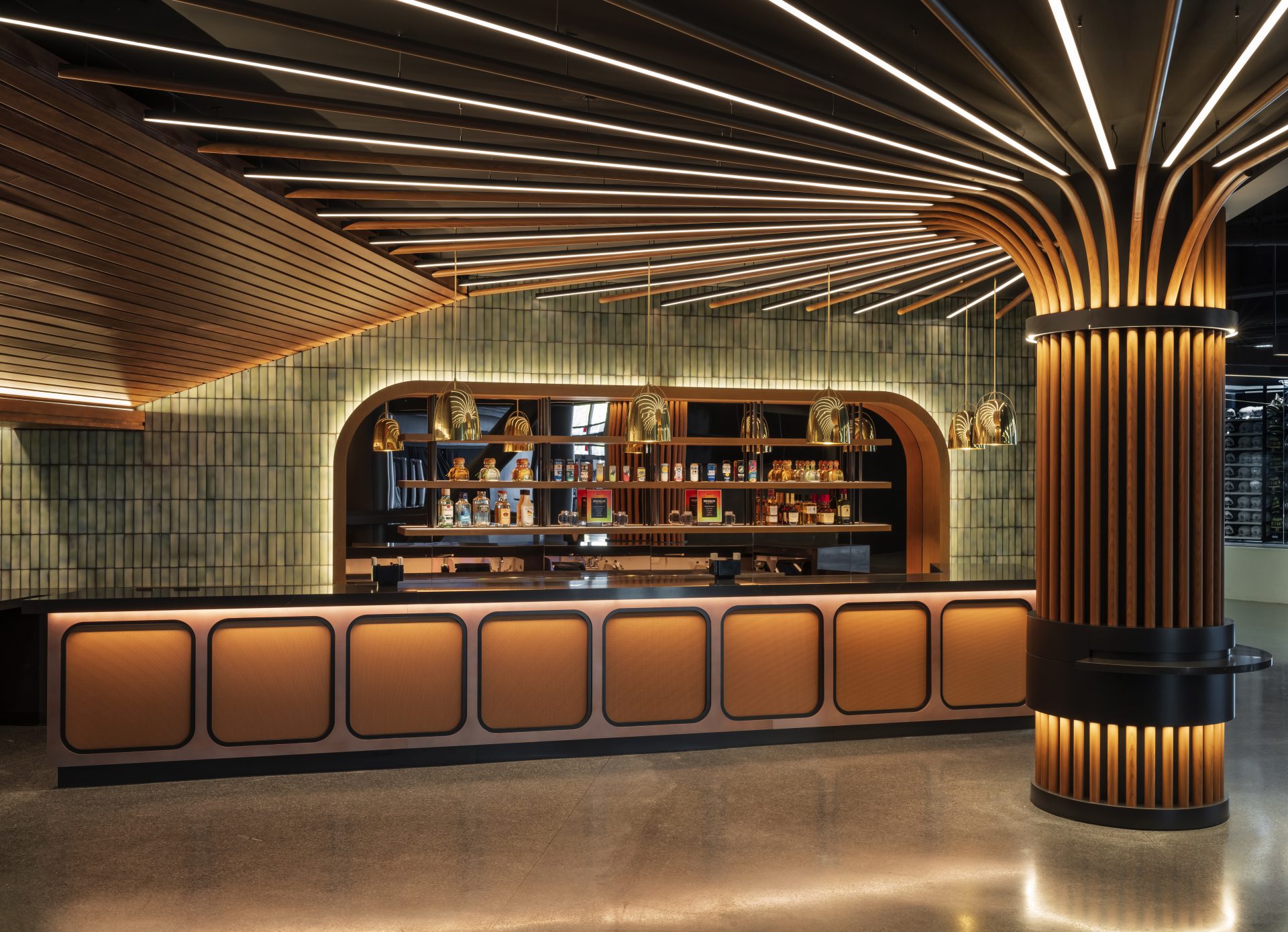



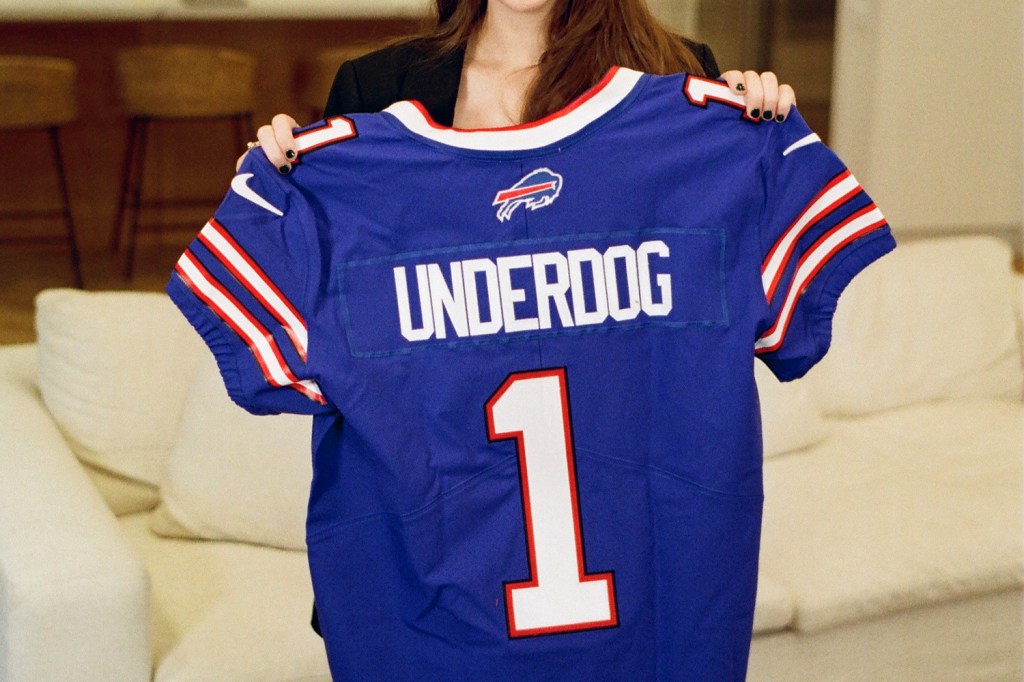


![[Subscription Customers Only] Jun 15, 2025; Seattle, Washington, USA; Botafogo owner John Textor inside the stadium before the match during a group stage match of the 2025 FIFA Club World Cup at Lumen Field.](https://frontofficesports.com/wp-content/uploads/2026/02/USATSI_26465842_168416386_lowres-scaled.jpg?quality=100&w=1024)
![[Subscription Customers Only] Jul 13, 2025; East Rutherford, New Jersey, USA; Chelsea FC midfielder Cole Palmer (10) celebrates winning the final of the 2025 FIFA Club World Cup at MetLife Stadium](https://frontofficesports.com/wp-content/uploads/2026/02/USATSI_26636703-scaled-e1770932227605.jpg?quality=100&w=1024)

